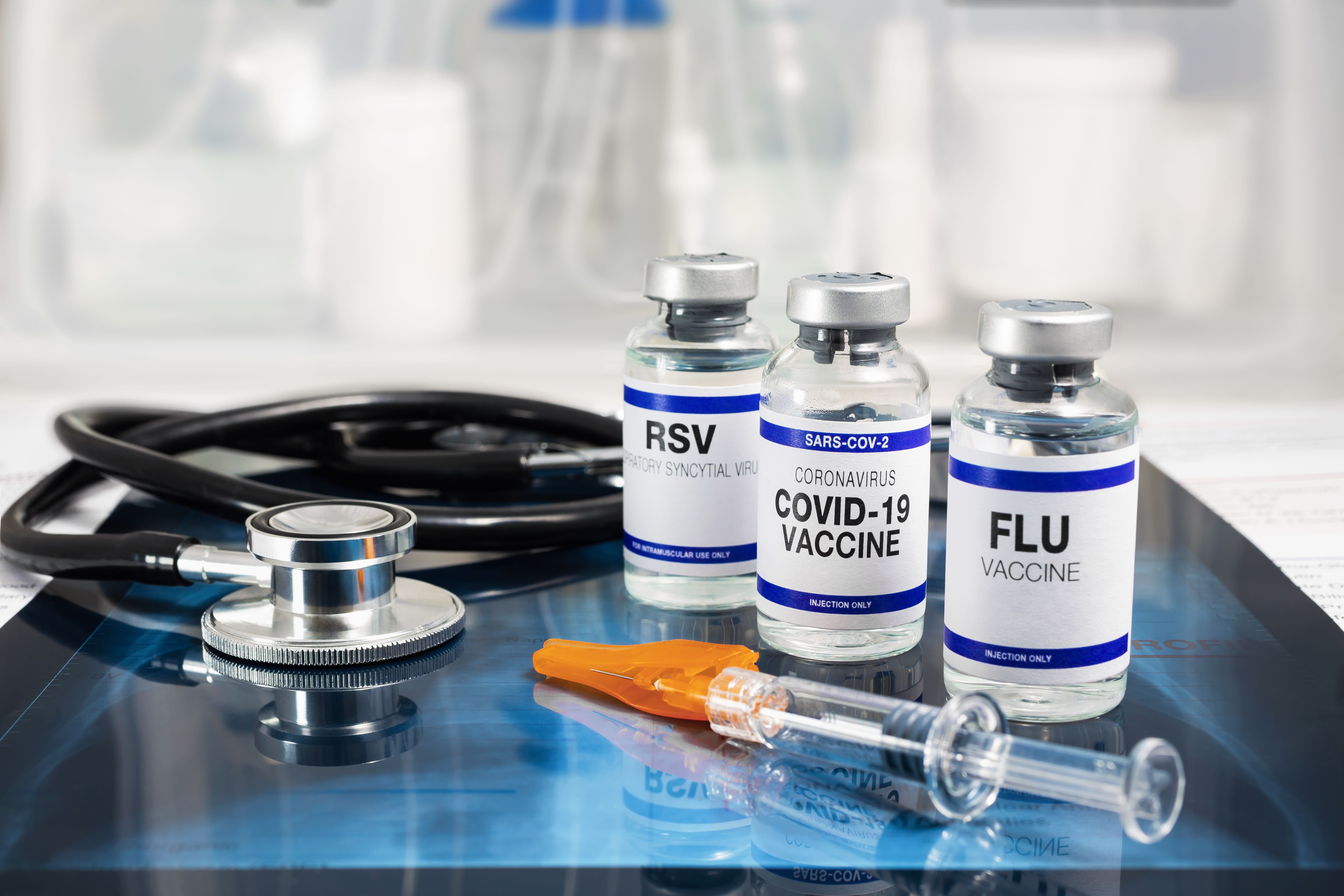- Center on Health Equity & Access
- Clinical
- Health Care Cost
- Health Care Delivery
- Insurance
- Policy
- Technology
- Value-Based Care
Nirsevimab, RSVpreF Saw High Uptake With No Preterm Risk for RSVpreF
High vaccine uptake shows promise for the prevention of respiratory syncytial virus (RSV) in infants.
The rollout of 2 major interventions to prevent severe respiratory syncytial virus (RSV) in infants—the RSV prefusion F (RSVpreF; ABRYSVO) vaccine for pregnant individuals and the monoclonal antibody nirsevimab (Beyfortus) for newborns—has shown high uptake in a recent cohort study.1
High vaccine uptake shows promise for infantile respiratory syncytial virus (RSV) prevention. | Image credit: angellodeco - stock.adobe.com

Conducted at a single academic center, the study found that 64% of eligible pregnant individuals received the RSVpreF vaccine, while 70% of eligible infants received nirsevimab before hospital discharge.
This retrospective cohort study is published in JAMA Network Open.
“It is crucial to understand the uptake and outcomes of the newly approved pharmacologic interventions against infant RSV to effectively plan public health initiatives,” wrote the researchers of the study. “In this study, we describe the uptake of the RSVpreF vaccine among eligible pregnant people and nirsevimab among eligible infants during the first season of availability. We also describe obstetric outcomes between those who received the RSVpreF vaccine and those who did not.”
In August 2023, the FDA approved RSVpreF as the first vaccine for pregnant individuals to protect infants up to 6 months old from RSV-related lower respiratory tract disease (LRTD) and severe LRTD.2 In July 2023, the FDA approved nirsevimab to prevent RSV in infants, newborns, and those 24 months and younger who are still vulnerable to RSV through their second season of RSV.3
This study was conducted at a single academic medical center and included 647 pregnant individuals eligible for RSVpreF vaccination between 32- and 36-weeks’ gestation from October 15, 2023, to January 31, 2024.1 Infants were eligible for nirsevimab if their birth parent had not received the RSVpreF vaccine at least 14 days before delivery. Data on vaccine uptake, demographic factors, and clinical outcomes were collected from electronic medical records.
The primary outcomes included the proportion of eligible pregnant individuals who received the RSVpreF vaccine and the proportion of eligible infants who received nirsevimab before hospital discharge. Additionally, the researchers assessed the association between RSVpreF vaccination and preterm birth, and identified factors associated with vaccine uptake, adjusting for demographic and clinical characteristics.
Among the eligible pregnant individuals, mean (SD) age was 34.6 (6.2) years, and 64.0% (n = 414) received the RSVpreF vaccine. Higher vaccine uptake was associated with older maternal age, nulliparity, private insurance, non-Hispanic ethnicity, and receipt of other vaccines such as influenza, COVID-19, or tetanus-diphtheria-pertussis. Lower uptake was observed among individuals with a non-English language preference, who identified as Black, identified as other/unknown race, and had multiple gestations.
Among 261 eligible infants, 70.1% (n = 183) received nirsevimab before hospital discharge, including 40.4% of those born to parents who declined routine prenatal vaccines and 34.0% of those whose parents declined infant hepatitis B vaccination. RSV prevention coverage exceeded 80% during all months except October 2023, when these interventions were first introduced.
Moreover, preterm birth rates were 8.5% among RSVpreF-vaccinated individuals and 18.5% among unvaccinated individuals, with no significant association between RSVpreF vaccination and preterm birth.
The researcher noted some limitations. First, it was conducted at a single academic medical center. Second, vaccine uptake may have been influenced by institutional practices or patient demographics specific to the study site. Third, despite adjustments for potential confounders, unmeasured factors such as health care access, patient preferences, and provider recommendations could have influenced vaccination decisions.
Despite these limitations, the researchers believe the study shows high vaccine uptake of the RSVpreF vaccine and nirsevimab during the 2023-2024 season.
“This study suggests that an RSV prevention strategy that included both prenatal vaccination and infant monoclonal antibody administration had high uptake and reassuring perinatal outcomes,” wrote the researchers.
References
1. Blauvelt CA, Zeme M, Natarajan A, et al. Respiratory syncytial virus vaccine and nirsevimab uptake among pregnant people and their neonates. JAMA Netw Open. 2025;8(2):e2460735. doi:10.1001/jamanetworkopen.2024.60735
2. Steinzor P. Nonadjuvanted bivalent RSV vaccination not associated with preterm birth, study finds. AJMC®. July 12, 2024. Accessed February 19, 2025. https://www.ajmc.com/view/nonadjuvanted-bivalent-rsv-vaccination-is-not-associated-with-preterm-birth-study-finds
3. Bonavitacola J. FDA approves Beyfortus for use in infants with RSV. AJMC®. July 17, 2023. Accessed February 19, 2025. https://www.ajmc.com/view/fda-approves-beyfortus-for-use-in-infants-with-rsv
The Breakdown: Breast Cancer Research Awareness Day
August 19th 2025Breast cancer is the second most common cancer among women and the second leading cause of cancer-related deaths among women in the US. In light of Breast Cancer Research Awareness Day, The American Journal of Managed Care® breaks down the most recent advancements in breast cancer prevention, screening, and therapies.
Listen
